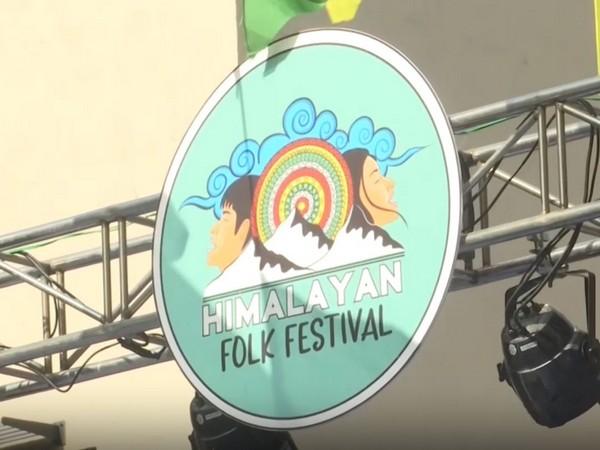Siliguri: In an effort to preserve and promote the rich traditions of the Himalayan region, the Warnamala Paribar and the Association for Conservation & Tourism (ACT) organized a three-day-long Himalayan Folk Music Festival in Siliguri.
The event brought together artists and ethnic communities from across the region, celebrating the unique folk music of the Himalayan foothills.
The festival showcased the vibrant cultural heritage of various ethnic communities, with performances of traditional folk music from groups such as the Toto, Limbu, Dhimal, Chamba, and Haryana.
Dressed in their distinctive traditional costumes, the artists captivated audiences with their soulful performances, enriching the event with the diverse sounds of the Himalayas.
Foreign nationals also participated in the festival, collaborating with Indian folk singers and musicians.
These international participants, who have long been involved in promoting India's cultural heritage, joined in playing musical instruments alongside the performers.
The central goal of the festival was to create a deeper connection among the youth of India to their roots by encouraging the practice of folk music in their native languages, which are rich in wisdom and history.
The organizers emphasized the importance of preserving these languages and musical forms, particularly as they face the threat of extinction due to globalization and Westernization.
Raj Basu, head of ACT Siliguri spoke to ANI and said, "Music is the easiest language that is understood by the people of the world. So we thought, why not let these ethnic languages reach out to the world through the festival? It gives the artists a chance to exchange music with foreigners. The main motive is to protect folk culture and promote it through rural tourism. Our target is to bring Himalayan folk music into the lifeline."
Matt Keegan, a musical artist from Sydney, Australia, expressed his admiration for the festival in a conversation with ANI.
"The friendships, rhythm of the music, beautiful voices, melodies, vibrant colors, and dancing in the folk music attracted me to India," he said, adding, "It was an amazing experience playing new musical instruments, hearing new songs, and witnessing the dances."
He also highlighted a growing concern, adding, "It's very sad that some of the music and languages are dying because of Westernization in India. It's really important that Indians should practice and preserve these cultures."
The festival also honoured Soni Toto, an artist from the Toto community, a small tribal group residing in Totopara, whose population stands at just 1,640.
Soni Toto had recently won first place in the World Folkathon competition, organized by the festival group. He expressed pride in his community's rich culture and called on the younger generation to carry forward the baton of cultural preservation.
"We can promote our culture through traditional costumes and music," he said, adding, "It is crucial to preserve our heritage culture."
The event was inaugurated by Prem Singh Tamang (Goley), Chief Minister of Sikkim, who felicitated several renowned artists for their contributions to the preservation of Himalayan folk music. (ANI)

